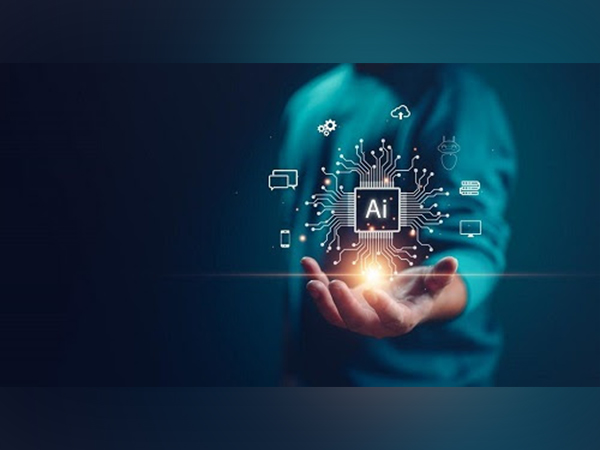8 Cutting-Edge AI Trends Reshaping Healthcare

Pune (Maharashtra), India, March 21: The impact of artificial intelligence The influence of artificial intelligence (AI) spans multiple sectors, with healthcare being particularly advantageous. The incorporation of AI goes beyond mere improvement; it represents a critical transformation that bolsters patient care, streamlines administrative processes, and promotes sophisticated therapeutic techniques. AI-powered diagnostic tools swiftly analyze medical imagery, aiding in early detection of diseases and better health outcomes for patients. Additionally, AI-run chatbots offer immediate access to medical data for patients, thereby increasing their involvement with healthcare providers and making these resources more accessible. crucial resources .
Beyond clinical applications, AI is streamlining operational aspects of healthcare. Hospitals are increasingly adopting AI to automate routine tasks, such as medical documentation, thereby reducing the workload on healthcare professionals and allowing them to focus more on patient care. Moreover, AI is enhancing medical education through advanced tools and technologies, fostering immersive learning experiences that ultimately improve patient care. This article explores eight future trends of AI in healthcare, highlighting how these advancements are poised to revolutionise the industry.
1. Personalised medicine
The ability of AI to process extensive medical data supports the development of treatment plans tailored to individual patients. By incorporating genetic profiles, lifestyle choices, and medical history, AI can assess potential responses to specific therapies, enabling more accurate and targeted treatments. This advancement in personalised medicine holds the potential to boost patient health and minimise negative reactions.
2. Predictive analytics
Artificial intelligence-powered predictive analytics can forecast health problems prior to their onset. Through the examination of historical and present information, AI algorithms uncover trends signaling possible ailments or complexities. For instance, AI systems can pinpoint individuals at risk of developing long-term conditions such as cardiovascular disorders or diabetes, thereby facilitating early intervention and proactive treatment measures.
3. Virtual health assistants
AI-driven virtual health aides are revolutionizing how patients engage with their care. Offering round-the-clock support, these electronic helpers tackle questions, schedule appointments, and send out medication alerts. This enhances access to healthcare services and eases pressure off of healthcare providers. To illustrate, AI-powered chatbots help patients adhere to pre- and post-operative guidance, thereby boosting compliance with treatments.
4. Remote patient monitoring
Wearable technology with artificial intelligence AI functionalities facilitate ongoing tracking of patients' vital signs. Through constant data gathering, medical professionals can promptly identify irregularities and intervene swiftly. This remote surveillance approach could enhance overall well-being and significantly decrease hospital readmission rates for individuals with long-term conditions. The AI interprets information gathered from these devices to offer practical recommendations, thereby enabling anticipatory care measures.
5. Artificial Intelligence in Medical Imaging
Artificial intelligence is transforming medical imaging through improved precision and faster image assessment. Advanced machine learning techniques can spot minor alterations in scans, assisting with the timely identification of diseases such as cancer. As an illustration, AI systems can examine mammography images to uncover possible tumors that might escape detection by human observers, thereby facilitating prompter intervention and enhanced health results for patients.
6. Discovering and Developing Medications
The pharmaceutical sector is incorporating artificial intelligence to accelerate the process of discovering new drugs. Through analyzing vast amounts of biological information, AI can predict interactions between different compounds and their targets, enabling researchers to identify promising drug options much faster. This sophisticated function drastically cuts down development timelines, lowers research expenses, and speeds up the delivery of novel therapies to those who require them.
7. Mental health support
AI-powered digital mental health solutions are greatly expanding accessibility to essential psychological assistance, ensuring that a larger segment of the population can receive help. These sophisticated programs deliver cognitive behavioral therapy, monitor changes in moods over periods, and supply instant emergency aid as required. Furthermore, they analyze user engagement and behavior trends to detect preliminary indicators of possible mental health concerns. Through employing machine learning techniques, these platforms tailor advice and direct people toward suitable stress management methods.
8. Administrative efficiency
Healthcare providers are leveraging AI to handle everyday administrative tasks such as appointment scheduling, invoicing, and record-keeping. By doing so, they minimize mistakes made by humans and alleviate pressure from healthcare workers, enabling these professionals to focus more on providing quality patient care. Additionally, AI systems can oversee reservations and issue alerts, which helps decrease the number of skipped appointments and enhances overall efficiency.
Conclusion
The integration of artificial intelligence into healthcare is also transforming financial dynamics within the sector. Non-Banking Financial Companies (NBFCs) are adjusting their investment approaches to cater to the rising demand for AI-powered healthcare innovations. The Reserve Bank of India has relaxed borrowing regulations, facilitating this shift. NBFCs can now provide better financial backing for AI adoption in medical technology and platforms.
The rise of online marketplaces is transforming the distribution of AI-driven healthcare solutions. These platforms provide medical professionals with access to a broad range of AI tools and services, encouraging industry collaboration and innovation. By acting as a central hub, digital marketplaces are expediting the adoption of advanced AI technologies in everyday healthcare.
In summary, AI is transforming healthcare via advances in personalized medicine, predictive analytics, and virtual assistance. As NBFCs modify their lending approaches and online platforms facilitate AI integration, the sector is moving toward a future where technological innovations and human skills improve patient results.
(ADVERTORIAL DISCLOSURE: The aforementioned press release has been supplied by NewsVoir ANI shall not bear any responsibility for the content thereof.

Gabung dalam percakapan